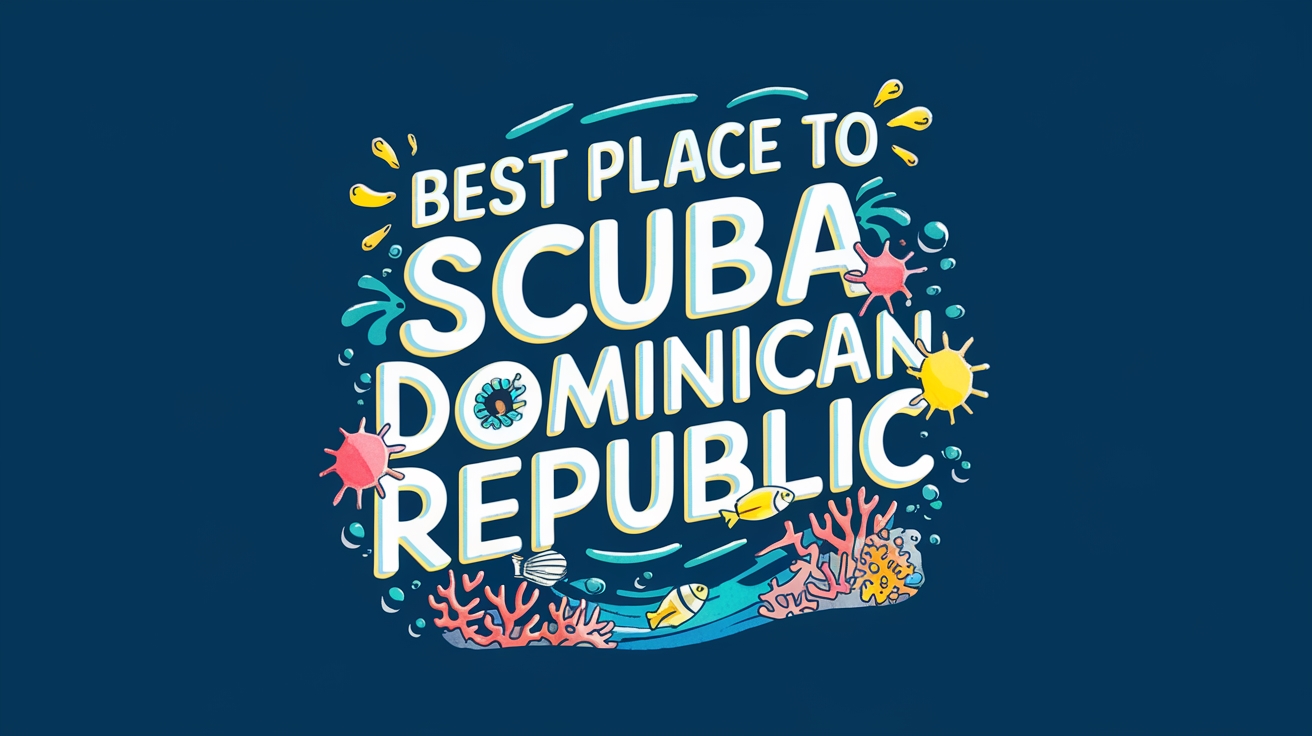Dry mouth during scuba plunging isn’t just an uncomfortable nuisance—it can significantly impact both safety and enjoyment underwater. This common condition, technically known as xerostomia, affects many divers as a result of the combination of compressed air, breathing patterns, and environmental factors. While seemingly minor, a parched mouth can lead to difficulty equalizing pressure, increased anxiety, and potential dehydration during plunges. Fortunately, several proven strategies exist to combat this issue, from pre-plunge preparation to equipment choices and breathing techniques. Understanding these preventive measures is vital for any diver seeking to maximize their underwater experience.
Key Takeaways
- Stay well-hydrated by drinking 500-600mL of water 2-3 hours before diving and avoiding caffeine and alcohol beforehand.
- Practice slow, diaphragmatic breathing through the mouth while diving to maintain consistent air consumption and reduce dryness.
- Consider using a full-face mask or rebreather system that provides more humidified air during dives.
- Consume hydrating foods like watermelon and citrus fruits before diving, and use sugar-free gum to stimulate saliva production.
- Ensure proper equipment fit with custom mouthpieces to reduce jaw fatigue and maintain comfortable breathing patterns.
Understanding Dry Mouth in Diving
Scuba explorers frequently encounter dry mouth, a common yet potentially serious condition that can affect both exploring comfort and safety. This condition primarily occurs when divers breathe compressed air from tanks, which lacks natural humidity and can lead to throat irritation and reduced saliva production. Multiple factors contribute to this issue, including dehydration, continuous mouth-breathing through regulators, and exposure to saltwater environments. Regular physical fitness training helps divers maintain steady breathing patterns that reduce dry mouth occurrence.
Understanding the mechanisms behind dry mouth is essential for divers, as it can appear in various symptoms that impact dive quality and health. Beyond immediate discomfort, dry mouth can lead to swollen uvula, dental problems, and increased susceptibility to infections. Medical conditions and certain treatments may worsen these effects, making prevention especially important for affected individuals.
The diving community has developed numerous solutions to address this challenge, from basic hydration practices to advanced equipment modifications. Modern diving gear includes innovations like full-face masks, rebreathers, and moisture-replenishment systems that help maintain oral hydration. Furthermore, simple techniques such as proper pre-dive hydration and breathing through the nose when possible can significantly reduce dry mouth symptoms.
Essential Pre-Dive Hydration Tips
Maintaining proper hydration before plunging stands as a cornerstone of safe and comfortable underwater exploration. Begin your hydration strategy 2-3 hours before plunging by consuming 500-600 mL of water, spacing your intake to avoid overloading your system. Immersion pressure on your body causes increased urine production, making pre-dive hydration even more essential. For ideal preparation, dedicate 30% of your daily water intake to pre-plunge hydration, starting 1-1.5 hours before your plunge in 30-minute intervals.
Smart hydration choices extend beyond water consumption. Incorporate water-rich foods like cucumbers and watermelon into your pre-plunge nutrition plan, while strictly avoiding caffeine and alcohol for 10-12 hours before plunging. These substances can contribute to dehydration and potentially increase your risk of decompression sickness.
Track your water intake using a clear, BPA-free bottle with measurement markings to guarantee you’re meeting the recommended consumption of 1 liter per hour of planned plunging. For technical plunging operations, maintaining precise hydration becomes even more critical for proper gas exchange. Consider using electrolyte drinks in hot conditions or during demanding plunges, but avoid energy drinks that may compromise your hydration status.
Proper Breathing Techniques Underwater
A swimmer’s breathing technique serves as the foundation for both safety and comfort underwater. Proper breathing methods not only prevent dry mouth but additionally improve buoyancy control and maximize air consumption. Mastering diaphragmatic breathing, where inhalation expands the stomach rather than the chest, allows divers to optimize oxygen intake while maintaining stability. Full yogic breath helps develop proper breathing mechanics before entering the water.
| Breathing Element | Underwater Application |
|---|---|
| Rhythm | Slow, consistent cycles for peak air usage |
| Direction | Inhale and exhale through mouth only |
| Depth | Deep abdominal breathing, not chest breathing |
| Pattern | Equal segments for inhalation and exhalation |
| Control | Use breathing for buoyancy adjustments |
Maintaining a streamlined position while practicing controlled breathing reduces unnecessary movement and conserves energy. Divers should never hold their breath, as air inside the lungs expands or contracts with depth changes, potentially causing injury. Pre-dive preparation, including relaxation techniques and breathing exercises, significantly improves underwater performance. Regular practice of these techniques on land develops muscle memory, leading to more efficient breathing patterns during dives. This systematic approach to breathing management guarantees both safety and peak air consumption throughout the diving experience.
Equipment Selection and Modifications
While proper breathing techniques form the foundation of underwater comfort, selecting the right equipment plays a similarly vital role in preventing dry mouth. Full-face masks and rebreathers offer significant advantages by delivering warmer, more humid air through both nose and mouth breathing pathways, while integrated moisture retention systems can further improve humidity levels during immersions. A regular check of equipment ensures that seals are undamaged and masks remain watertight.
Custom-fit mouthpieces represent a vital equipment modification that can dramatically enhance diving comfort. The SeaCURE mouthpiece, which can be molded at home using hot water, provides an exact fit that reduces jaw fatigue and gum abrasion. For those seeking standard options, high-quality silicone mouthpieces like the MP-200 offer improved durability and comfort across various regulator types.
Further moisture retention equipment includes specialized humidifiers that attach directly to regulators, along with practical solutions like Oasis mouthwash or spray. When selecting equipment, verify compatibility between mouthpieces and regulators, as proper fit is fundamental for both comfort and function. Divers can likewise benefit from carrying fresh water on boats for between-dive rinses, maintaining ideal oral moisture throughout their diving sessions.
Dietary Choices for Divers
Making informed dietary choices before water activities can significantly impact oral comfort and overall performance during a session. Smart pre-activity food selection includes hydrating options such as watermelon, citrus fruits, and cucumber, which help maintain ideal moisture levels in the mouth and body. Experienced water enthusiasts often complement these choices with small, easily digestible snacks like granola bars or dried fruit, which provide sustained energy without causing gastrointestinal discomfort. Divers must prioritize pre-dive hydration by consuming adequate fluids well before entering the water to reduce risks associated with dehydration.
Pre-Dive Food Selection
Proper food selection before scuba plunging plays a crucial role in preventing dry mouth and maintaining peak plunge performance. The key lies in choosing nutrient-rich, easily digestible foods while avoiding items that could cause discomfort underwater. Complex carbohydrates, lean proteins, and proper hydration form the foundation of an effective pre-plunge meal plan. Dried fruit snacks can provide quick energy and essential magnesium to help prevent leg cramps during dives.
Timing your meals strategically helps optimize your diving experience. Consume main meals at least two hours before plunging, allowing adequate digestion time. Light snacks, such as bananas or nuts, can be eaten 30 minutes before plunging for an energy boost without causing digestive issues.
| Food Type | Benefits | Timing |
|---|---|---|
| Complex Carbs | Sustained Energy | 2+ hours before |
| Lean Protein | Muscle Support | 2+ hours before |
| Fresh Fruits | Quick Energy | 30 min before |
| Light Snacks | Energy Boost | 30 min before |
| Water | Hydration | Throughout |
Avoid greasy foods, spicy dishes, and acidic fruits that might trigger digestive discomfort or increase dry mouth symptoms. Instead, focus on hydrating foods like bananas, which provide crucial potassium, and easily digestible proteins such as eggs or salmon, which support energy levels throughout your plunge.
Hydrating Snacks Guide
Smart snack selection forms the cornerstone of maintaining proper hydration during scuba plunging adventures. The key is to focus on foods with high water content and crucial electrolytes, which help maintain ideal hydration levels throughout your plunge. Citrus fruits, watermelon, and cucumbers serve as excellent choices, offering both refreshment and vital nutrients. Proper snack timing helps support saliva gland production during dives.
For sustained hydration, incorporate electrolyte-rich foods into your pre-plunge routine. Bananas and avocados provide potassium, while coconuts deliver a natural balance of electrolytes and water. Nuts, seeds, and seaweed offer additional mineral support that can improve your diving experience. Complement these solid foods with appropriate beverages, such as water, natural fruit juices, or herbal teas.
Equally important is knowing which items to avoid before plunging. Steer clear of caffeinated foods, alcoholic beverages, and energy drinks, as these can promote dehydration. Similarly, spicy foods and salty snacks may increase thirst and compromise your hydration status. By making informed choices about your pre-plunge nutrition, you can maintain ideal hydration levels and enjoy a more comfortable diving experience.
Saliva Production Enhancement Methods
Through targeted saliva stimulation techniques, scuba explorers can effectively combat dry mouth during their underwater adventures. Natural methods of increasing saliva production can be seamlessly integrated into your diving routine, ensuring ideal comfort throughout your underwater experience.
Several proven methods boost saliva production during explorations:
- Keep sugar-free hard candies in your diving gear, as they stimulate continuous saliva flow without compromising your diving safety.
- Incorporate citrus fruits into your pre-dive nutrition routine, as their natural acids trigger increased salivary response.
- Use specialized moisture-replenishment systems that integrate with your diving equipment to maintain ideal oral hydration.
- Implement strategic mouth-rinsing techniques with fresh water during safety stops.
Between explorations, maintain active saliva production by chewing sugar-free gum, which keeps salivary glands engaged. For improved effectiveness, combine these techniques with proper hydration protocols and appropriate breathing patterns. Modern diving equipment, such as full-face masks and specialized filters, can work in conjunction with these methods to create an ideal environment for maintaining oral moisture levels throughout your exploration session. Divers should monitor for signs of uvula inflammation and seek medical evaluation if persistent dry throat symptoms occur.
Health Risks and Warning Signs
While dry mouth may seem like a minor inconvenience during scuba diving, it can lead to serious health complications when left unaddressed. Persistent dry mouth conditions can cause significant dental problems, including tooth decay and gum disease, because of reduced saliva production. Furthermore, divers may experience respiratory issues and increased susceptibility to infections in the oral cavity.
The warning signs of dry mouth-related problems are distinctive and should not be ignored. Divers should watch for continuous mouth dryness that persists during and after dives, along with throat irritation and uvulitis. Physical symptoms often include dental sensitivity and difficulty breathing underwater, which can compromise dive safety. The presence of frequent mouth infections may likewise indicate an ongoing dry mouth condition that requires attention.
Recognizing these health risks and warning signs early allows divers to take appropriate preventive measures. If symptoms persist or worsen, consulting a diving medical professional is advisable, particularly for those with underlying medical conditions such as diabetes or salivary gland disorders that may intensify dry mouth symptoms during diving activities.
Medical Precautions While Diving
Taking appropriate medical precautions is vital for safe scuba diving, as diving-related health risks can be severe if not properly managed. Before initiating any diving adventure, individuals must undergo thorough medical evaluations to guarantee they’re physically fit for underwater activities, particularly regarding heart and lung function. Good aerobic capacity is essential for all divers, as it impacts overall safety and performance underwater.
To maintain safety while diving, divers should follow these fundamental medical guidelines:
- Avoid diving if experiencing any respiratory issues, cardiovascular problems, or conditions that might affect consciousness.
- Monitor and properly manage existing medical conditions, consulting with diving medicine specialists for personalized advice.
- Follow strict medication protocols, understanding how prescriptions might interact with diving conditions.
- Maintain awareness of personal physical limitations and abort dives if experiencing unusual symptoms.
During the dive, proper equalization techniques must be employed to prevent barotrauma, while post-dive care requires careful attention to flight restrictions and symptom monitoring. Special consideration should be given to certain medical conditions, such as diabetes or epilepsy, which require additional safety protocols. Pregnant women should avoid diving altogether because of potential risks to fetal development, and children under 10 years old should not participate in scuba activities.


